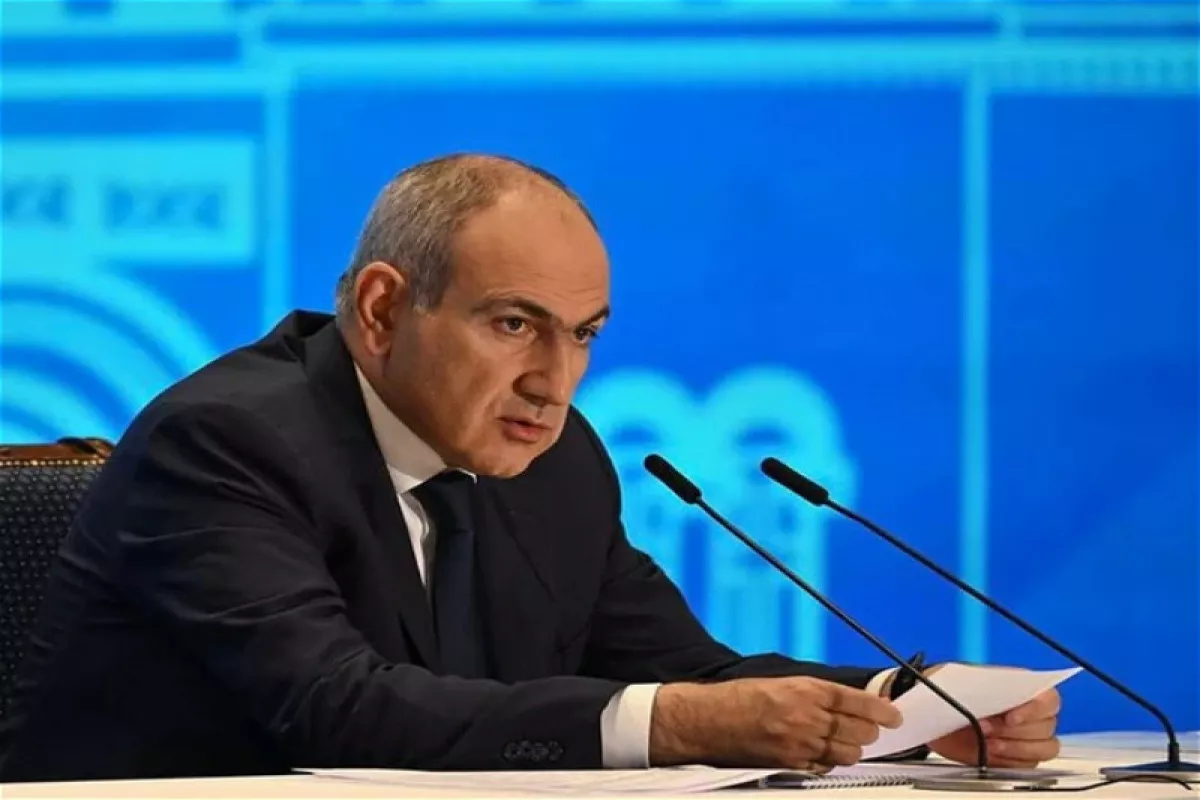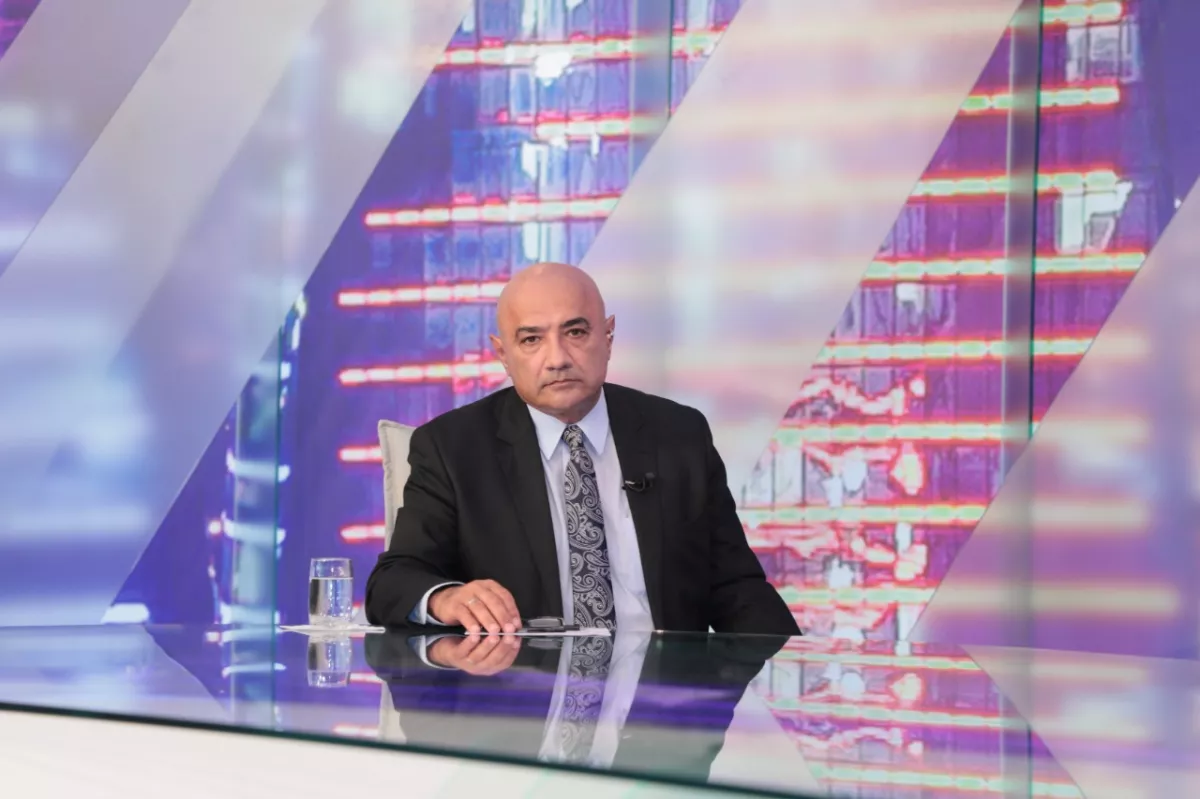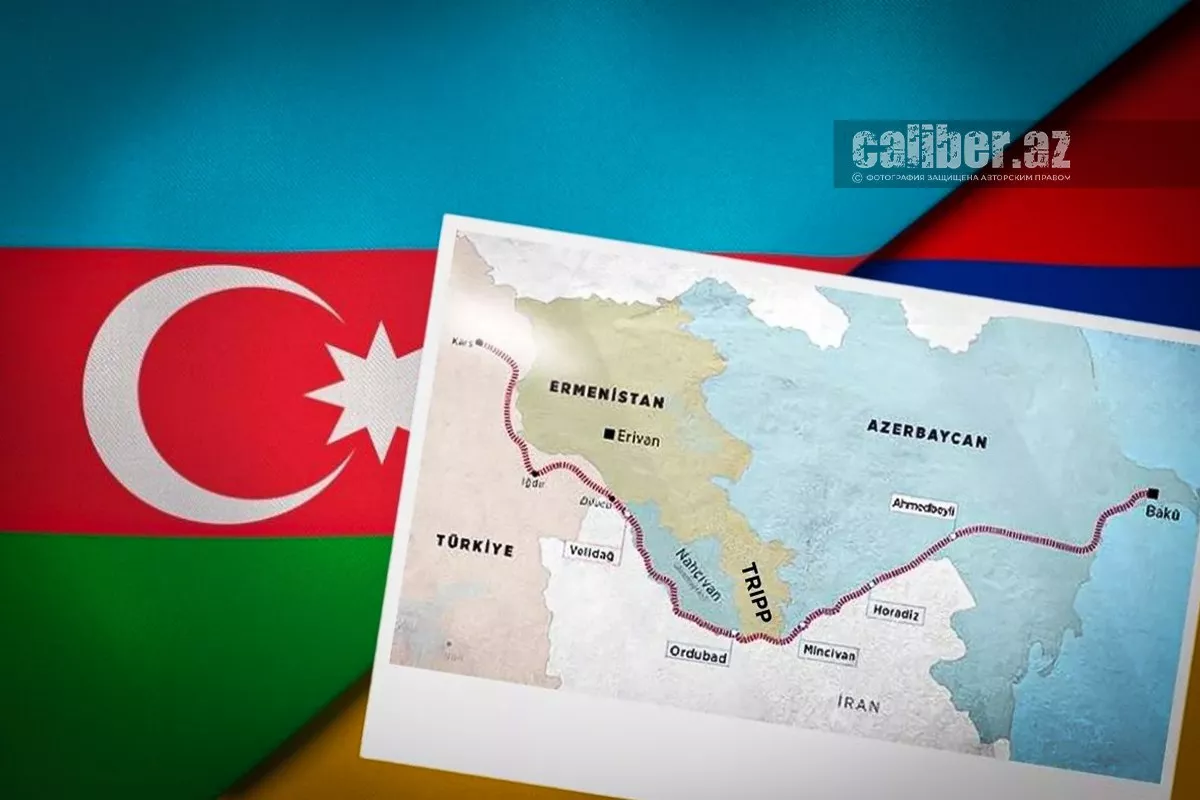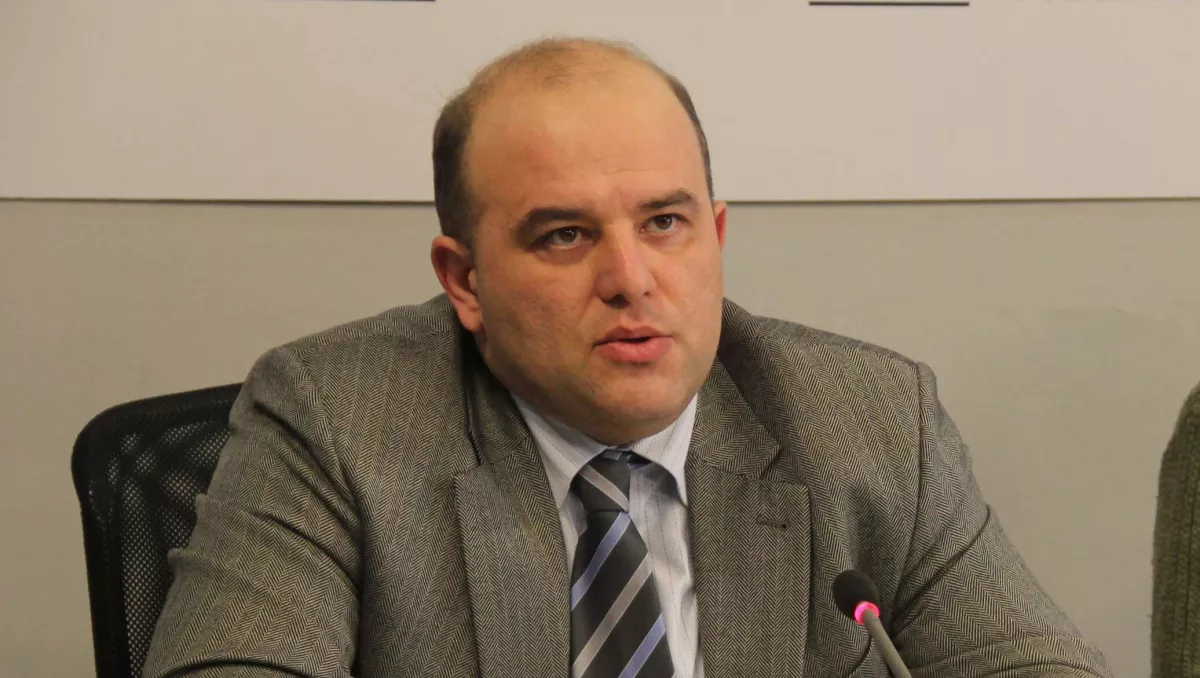Revanchism vs pragmatism: whose side is the Armenian voter on today? Expert opinions on Caliber.Az
Armenian Prime Minister Nikol Pashinyan commented on the latest statements by former presidents Robert Kocharyan and Serzh Sargsyan regarding the Karabakh conflict and peaceful relations with Azerbaijan on his social media pages.

He noted that their words only confirm that the issue of Karabakh was a leash in the hands of certain forces seeking to tie Armenia to the “nearest tree.” According to Pashinyan, concepts such as “people’s rights” and “historical justice” served merely as a smokescreen, concealing the true objectives.
The prime minister emphasised that all negotiation processes and proposals voiced before the war were not aimed at resolving the conflict but at “shortening the rope”—that is, increasing external control over the republic.
He stated that the ultimate goal of this policy was the destruction of Armenian statehood. Pashinyan also promised that negotiation documents confirming his claims would be published by the end of the year and accused Kocharyan and Sargsyan of attempting to return the country to a “KGB scenario,” written in the spirit of “Lenin, the Party, Gorbachev.” “The expected outcome is zero,” the Prime Minister concluded.
Thus, as the elections approach, the hostile rhetoric between opposition figures—who embrace revanchist ideas, refuse to acknowledge the results of the Second Karabakh War, and are, in essence, uninterested in signing a peace treaty with Azerbaijan—and the current government led by Pashinyan is becoming increasingly pronounced.
The question arises: whose side do the majority of Armenian voters favour today? Could public sentiment shift in favour of former presidents Kocharyan and Sargsyan as the parliamentary elections draw nearer? Will Pashinyan withstand the pressure from revanchist forces, win the elections, retain his position as Prime Minister, and complete the task he started—achieving lasting peace with Armenia’s nearest neighbours, Azerbaijan and Türkiye?
Prominent analysts shared their opinions on this issue with Caliber.Az.

Political analyst and Senior Advisor at the Baku International Centre for Multiculturalism, Tofig Abbasov, considers it indisputable that the closer Armenia’s parliamentary elections approach, the fiercer the domestic political struggle will become.
“Undoubtedly, kompromat, exposés, and accusations of secret ties between certain figures and external centres of influence will come into play. However, in my view, the advantage currently clearly lies with Nikol Pashinyan, who maintains control over the situation and relies on the loyalty of the security forces.
Yes, there is still a certain cluster in the army formed during previous presidencies, but the majority of the command today trusts Pashinyan. They understand that he is paving the shortest path to genuine state sovereignty. The prime minister is right in asserting that Kocharyan and Sargsyan effectively kept Armenia on a leash—the shorter the leash became, the more tightly the country was tied to external patrons.
It is no coincidence that Pashinyan emphasises that the era of a ‘mythical Armenia’ is over and that it is time to build a model of a real, viable country. This is not only a political strategy but also the hope, dream, and expectation of the majority of citizens who want to see Armenia independent and self-confident.
Revanchist sentiments undoubtedly exist within Armenian society. But how many of those echoing Kocharyan and Sargsyan, repeating that ‘Karabakh cannot be lost, Karabakh must be regained,’ truly believe what they are saying? Karabakh has not only not been lost—it was never Armenian. Yes, an Armenian minority lived there within the Azerbaijan Republic, but historically this region never belonged to Armenia, an artificially created state entity that emerged in the early 20th century amid profound geopolitical upheavals.
Did the first Republic of Ararat, covering about 9,000 square kilometres, possess Karabakh? No. The notion that Nakhchivan, Karabakh, and Zangezur should be ‘Armenian lands’ was originally imposed by external powers, primarily the Entente, which realised that Atatürk would never sign the Treaty of Sèvres. By declaring war on Türkiye, Armenia was defeated, and the six vilayets promised by Western powers—including the United States through President Woodrow Wilson—remained a mere chimaera.
Subsequently, the idea arose to resettle Armenians from Eastern Anatolia to the Caucasus, supposedly to ‘create their own state’ at the expense of the native Azerbaijani territories—Karabakh, Nakhchivan, and Zangezur. This is why the Armenian side continues to cling to these three regions, attempting to present them as ‘ancient Armenian lands.’ However, this does not reflect historical reality: there was never a dense Armenian population there. Armenians lived only in isolated mountain villages and settlements, while the indigenous inhabitants of these lands were long-established Turkic tribes—Azerbaijanis, our ancestors,” the expert emphasised.
Undoubtedly, he notes, the revanchist rhetoric of the former Armenian leaders—two ex-presidents—still confuses part of the population, particularly those who have yet to settle on their political preferences.
“The most illusory thinkers among them continue to believe that Karabakh can be regained. However, this is impossible. Even if Armenians were to reappear within Azerbaijan, it would only concern those born in Karabakh or descendants of the region’s indigenous population. Those who were forcibly resettled there from Lebanon, Syria, other Middle Eastern countries, Greece, Bulgaria, or Romania must return to their historical places of residence from which they once emigrated.
I am convinced that as the elections approach, Nikol Pashinyan’s resilience will only increase. Overall, he is managing his policy competently. Yes, at times his foreign policy line may appear contradictory—sometimes drawing closer to the European Union, at other times engaging with the Eurasian Economic Union or the CIS—but in essence, these are tactical manoeuvres. To date, Pashinyan remains the only Armenian politician who has chosen a relatively realistic and pragmatic path for the country’s development.

The sooner the Zangezur Corridor becomes operational, the stronger Pashinyan’s position will be. These 42 kilometres are Armenian territory, and Azerbaijan does not dispute that. The only point on which Baku insists is the introduction of legal amendments to Armenian legislation to remove erroneous territorial claims to the Karabakh region of Azerbaijan.
If Pashinyan demonstrates political will and cooperates on these issues, he will only benefit. Armenia is not yet economically stable and objectively needs regional integration. It is no coincidence that President Ilham Aliyev has repeatedly called on Yerevan to engage more actively in joint infrastructure and transport projects—these can provide tangible economic benefits. The Azerbaijani leader has also emphasised that Armenia has the potential to become a transit country, offering significant advantages.
I believe Nikol Pashinyan will withstand pressure from revanchist forces and succeed in winning the parliamentary elections. His programme of actions and priorities is the most rational and aligns best with the interests of the Armenian people,” the analyst says.
On the other hand, he noted, achieving peace with Azerbaijan and Türkiye will open new opportunities for Armenia—from the development of transport corridors to fostering a genuine spirit of good-neighbourliness in the region.
“And finally, Armenia will have a chance to improve its socio-economic situation. We can see how measuredly President Ilham Aliyev has acted by ordering the opening of transit for Armenian goods from Kazakhstan and Russia, effectively providing Yerevan with significant support. I am confident that Nikol Pashinyan appreciated this—it cannot be ignored. This step by Baku is real assistance to the Armenian economy: it strengthens Pashinyan’s position while also giving a respite to the national business sector. Armenian state and private structures gain new opportunities thanks to the opening of transit.
At the same time, it is important to understand that Azerbaijan is not acting out of weakness—on the contrary, the weak link in the region remains Armenia. Such a gesture is motivated by nobility and a desire for a civilised, gentlemanly approach in relations between neighbours.
Azerbaijan, in essence, sets an example of mature and rational policy, demonstrating that good-neighbourly relations are possible even after severe conflicts. Now the ball is in Armenia’s court. It is no coincidence that President Ilham Aliyev reminded Yerevan that it has to complete its ‘homework.’ The framework agreement, initialled on August 8 in Washington, is largely a continuation of the act of capitulation: its main obligations fall squarely on Armenia. Azerbaijan has fulfilled everything required since 2020, whereas Armenia still carries ‘debts’—like a student constantly dragging unfinished academic work.
I believe Pashinyan fully realises that fulfilling these obligations will determine the future of his country, his cabinet, and the entire system of government. As they say, the ball is now on the Armenian side. Everything depends on whether Yerevan can handle it wisely, so as not to lose face and to demonstrate that Armenia is genuinely ready for peace,” Abbasov concluded.

As stated by Doctor of Political Science, Professor Vakhtang Maisaia (Georgia), every time elections approach in Armenia, certain forces accustomed to taking directions from the “northern neighbour” begin to mobilise, trying to steer the political situation in their favour.
“They simply have no other support,” the expert noted. “No internal resources, no real allies. That is why, as the saying goes, they are digging up old skeletons from the closet. I do not believe the masses will once again follow former political leaders who have long lost influence and public trust. I am referring to Sargsyan and Kocharyan—these are the ones who led Armenia into a dead end. Today, Nikol Pashinyan is trying to lead the country out of this, essentially geopolitical, impasse.”
According to Maisaia, contemporary Armenian society has repeatedly resisted revanchist forces seeking to return the country to a post-Soviet past, when Armenia was isolated and effectively left to fend for itself.
“Now Armenia has the chance to become a full member of the international community, emerge from blockade, and begin a new, truly promising chapter. I believe the majority of citizens are choosing this path, rather than the old one. The upcoming elections will most likely mark the end of revanchism and the attempts, with Kremlin support, to turn back the wheel of history, once again isolating Armenia—as was the case before the recent Washington summit.
I am confident that serious opportunities will open up for Armenian society after this. It is possible that in such a scenario, the Kremlin will have only one option left—direct or indirect interference in Armenia’s internal affairs. But will it dare to take that step? We will see how events unfold,” Professor Maisaia concluded.








